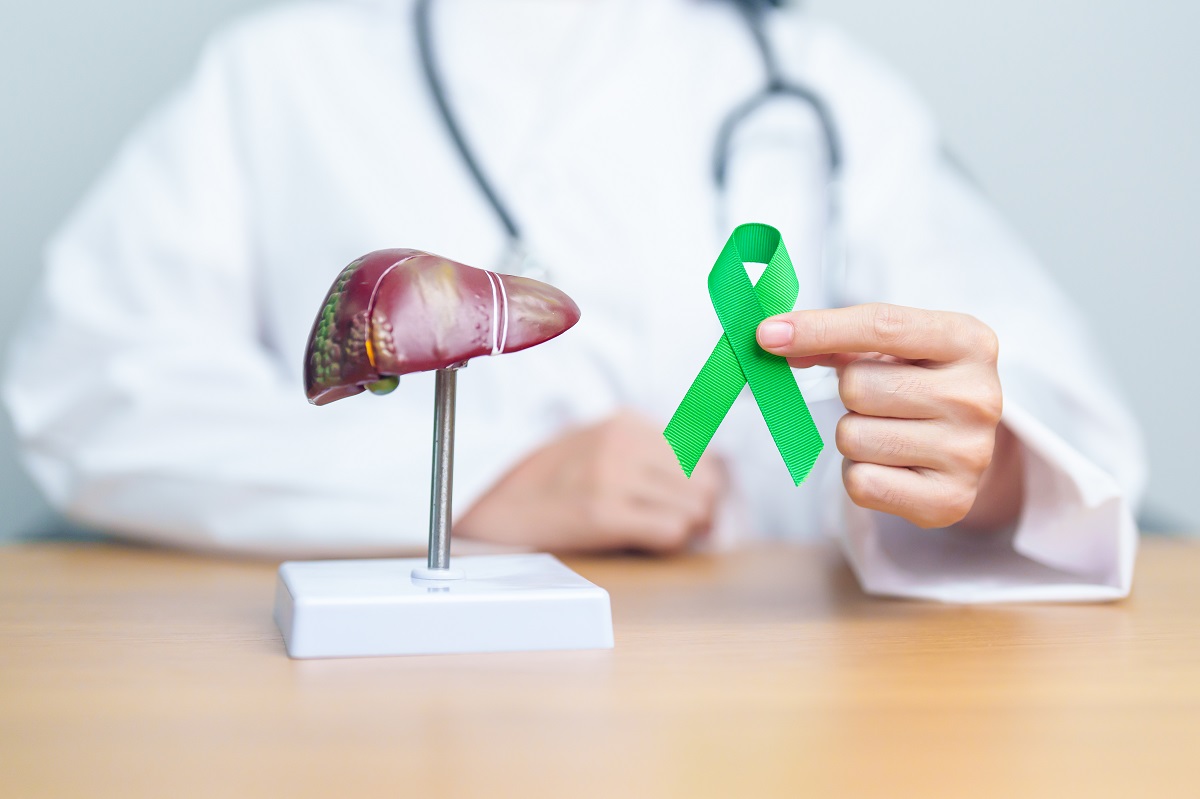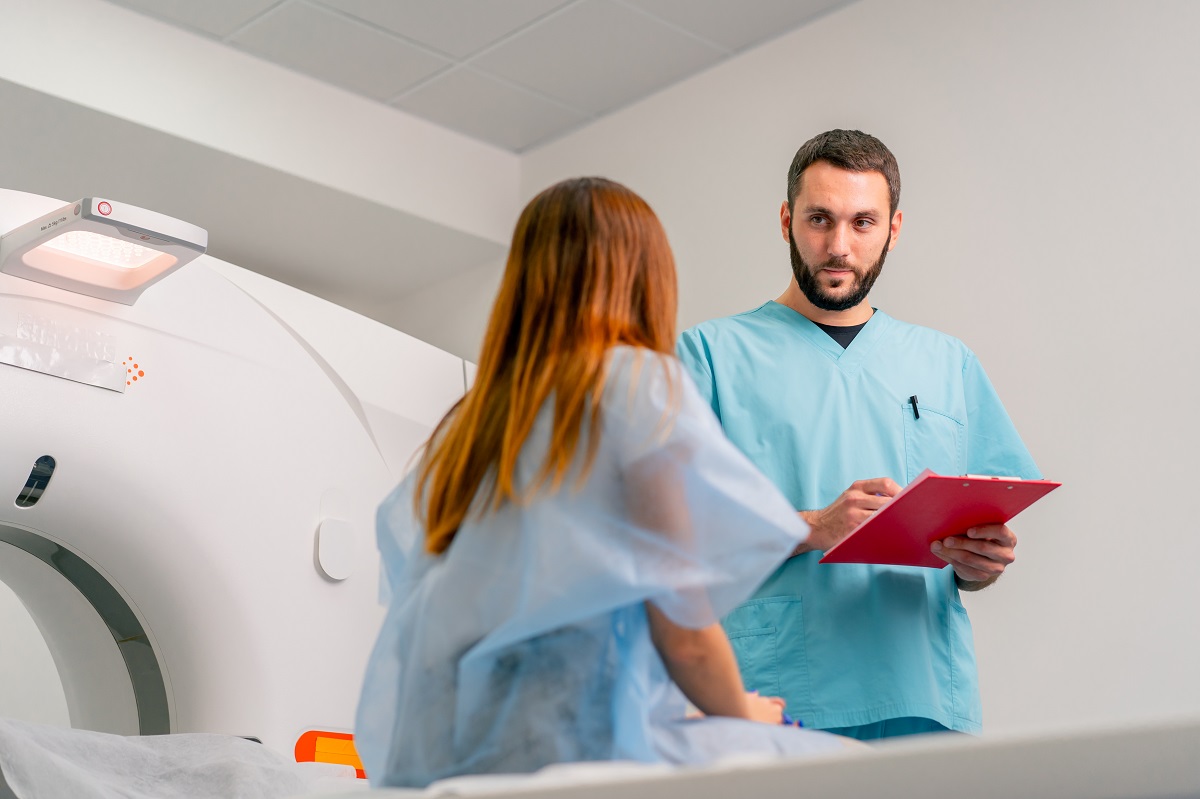This cancer type starts in the liver cells and it is called liver cancer. It is located in the upper right abdomen beneath the diaphragm and above the stomach.
There are different cancer types that affect the liver and the most common one is called hepatocellular carcinoma. It begins in the primary cells of the liver (known as hepatocytes). Hepatoblastoma and intrahepatic cholangiocarcinoma also may occur but less commonly.
However, the cancer that starts in other body parts and spreads to the liver happens more commonly than hepatocellular carcinoma. This is called metastatic cancer and usually is named according to the organ where it begins such as the metastatic colon.
Symptoms
Symptoms usually do not appear in the early stages of the cancer but may happen when it advances. These include:
- Upper abdominal pain
- Lack of appetite
- Abnormal weight loss
- Weakness
- Fatigue (extreme tiredness)
- Jaundice (yellowing of the eyes and skin)
- Chalky and white stools
- Nausea
- Vomiting
- Swelling of the abdomen
If you experience any of the previous symptoms, you should consult your doctor right away.
Causes
This cancer type usually begins when DNA changes (mutations) occur. DNA contains instructions that tell a cell when to grow, multiply, and die. A mutated DNA begins to tell different instructions to the cells, which leads to abnormal growth and forms a mass (tumor).
However, not every time it is possible to determine the exact cause of liver cancer. While in some cases, it appears due to chronic hepatitis infections, other people may experience it without underlying conditions.
Risk Factors
Check below some factors that may increase your risk of developing liver cancer:
- Chronic infections – These include hepatitis B virus (HBV) or hepatitis C virus (HCV).
- Cirrhosis – This is a progressive condition that cannot be reversed and it causes scar tissue in the liver. It also increases the risk of liver cancer.
- Inherited liver diseases – For example hemochromatosis and Wilson’s disease.
- Nonalcoholic fatty liver disease – A buildup of fat in the liver also elevates the risk of liver cancer.
- Diabetes – Those who have this condition are at a higher risk of developing liver cancer compared to people without this disease.
- Aflatoxins – People who are exposed to aflatoxins often produced by molds also increase their risk of developing this cancer type.
- Misuse of alcohol – Heavy alcohol drinking for long periods may cause permanent liver damage, which increases the risk of liver cancer.
Is it Possible to Prevent Liver Cancer?
The following tips may help you prevent this condition. For example:
Decrease the Risk of Cirrhosis
Check below some examples of how you can lessen the risk:
- Limit or avoid alcoholic beverages. For instance, do not drink more than one drink (for women) daily and no more than two drinks per day (for men).
- Try to get and maintain a healthy weight. If it is difficult to lose weight, doctors may recommend adopting a healthy diet and regular exercise. Aim for at least 30 minutes of physical exercise per day. Moreover, it is advised to lose weight slowly 1-2 pounds (0.5-1 kg) per week. Rapid weight loss may cause some health problems.
Hepatitis B Vaccine
You can reduce the risk of hepatitis B with vaccination and it is usually given to almost anyone (such as infants, older adults, and people with weakened immune systems).
Preventing Hepatitis C
Unfortunately, there is no vaccine for hepatitis C but the following steps may help reduce the risk. For example:
- Do not engage in unprotected sex – You should not have sex if you are not sure your partner is not infected with HBV, HCV, or other sexually transmitted infections or you can use condoms.
- Do not use intravenous drugs if you do not have a clean needle – Do not use injectable illegal drugs because it helps to reduce the risk of Hepatitis C or other health conditions. In any case, if it is not an option for you, it is advised to use a sterile needle.
- You should also seek safe and clean shops for a piercing or tattoo – In such places, the needles are not every time sterilized properly, which increases your risk of getting HCV.
Diagnosis
Healthcare providers diagnose this condition by performing the following tests. For example:
- Blood tests – These tests help doctors determine abnormalities associated with liver function.
- Imaging tests – These include ultrasound, CT, and MRI. Previous tests are used to get detailed images of the liver and other body structures.
- Biopsy – If previous tests show signs of liver cancer, doctors may perform this test. It involves the removal of a small piece of the liver and testing it in the laboratory for cancer cells.
Staging the Cancer
When cancer is diagnosed, doctors will perform additional tests to stage the cancer. Staging cancer means if cancer spreads to other body parts or not and doctors use numbers from 0 to 4 to stage it. It also helps to make the best treatment for you.
Treatment
The treatment depends on the severity of the cancer, whether it spreads or not, and other factors. Check below the most common treatments used in people with this cancer type:
Surgery
These include:
- Surgery to remove the tumor – This is an effective treatment if the cancer is early detected and small. In other words, it has not spread to other nearby tissues.
- Liver transplant – During this procedure, your damaged liver is removed and replaced with a healthy one. This treatment option may be used even in people with early-stage liver cancer but rarely.
Localized Treatments
These treatments involve procedures administered directly to the cancer cells or near tissues. Check below some examples:
- Radiofrequency ablation – This procedure uses electric current to heat and destroy cancer cells.
- Cryoablation – During this procedure, doctors will place a special instrument (cryoprobe) that contains liquid nitrogen. Thus, cryoablation uses extreme cold to kill cancer cells.
- Injecting alcohol – This procedure involves injecting pure alcohol into the tumor that help destroy it.
- Chemoembolization – It is a chemotherapy type that involves delivering strong medicines directly to the liver.
Radiation Therapy
This procedure uses powerful energy beams to destroy cancer cells. It is usually recommended by doctors when other treatment options cannot be used or for people with advanced-stage cancer. There are two types of radiation therapy such as internal and external and which one is better for you will decide your healthcare professional.
Targeted Drug Therapy
These medications target certain abnormalities in the cancer cells and block them. Thus, it helps destroy cancer cells. Moreover, doctors may perform some tests before this therapy to see if it will help you.
Immunotherapy
However, cancer cells produce certain substances that help them hide from the immune system. This treatment option involves medications that boost the immune system to fight against cancer cells.
Chemotherapy
It involves strong medications that help kill cancer cells. Chemotherapy may be prescribed by doctors along with other treatment options such as surgery, radiation therapy, and others. These medicines are usually given intravenously but a pill form is available too.
Frequently Asked Questions
Can liver cancer be cured?
Yes but in early stages only. When the cancer advances it may cause permanent damage to the liver the only treatment option possible may be a liver transplant. Consult with your doctor for more details.
What are the main liver cancer symptoms?
- Abnormal weight loss
- Bloating
- A feeling of fullness after even a small meal
- Tiredness
- Weakness
- Nausea
- Vomiting
If you experience one or more of the symptoms listed above, you must see a doctor immediately.
What are the complications of liver cancer?
People with liver cancer may experience some complications, especially without treatment. For example:
- Portal vein thrombosis
- Worsening ascites
- Hepatic encephalopathy
- Variceal bleeding
- Obstructive jaundice
This is not a complete list of complications, for more details discuss it with your doctor. If you have additional questions, ask your healthcare professional.




